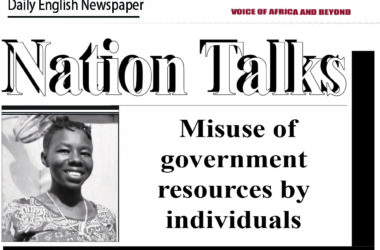Juba City Council (JCC) under Mayor’s office issued by-law order directing water tankers to sell water to residents of Juba City at affordable prices. The order details different prices of water according to locations or areas of residence. And the order carries punitive measures for overcharging residents by water tankers, as such; residents are urged to either report or resist any water tanker seller who violates the official water prices issued by Juba City Council.
The move by Juba City Council to regulate water prices is seen as an intervention by the government to protect the citizens from overpriced water costs by water tankers. And it is also seen as water tankers are manipulating the residents by charging according to their wishes, as so it merits intervention to rescue the situation.
However, Juba City Council’s order is challenged by the economic environment and the high cost of living in this country. Each day comes with its own demands on an incremental basis. The country’s legal tender, South Sudanese pound has lost its value against any foreign currency on daily basis. This has forced even the central bank to adjust to the floating exchange rate or parallel to catch up with the economic trends.
The exchange rate of South Sudanese pound in the black markets has little different from the central bank rate. The prices of everything in the markets have shot up and traders have no confidence that pound will stabilize quickly, and prices shall be lowered upon demand. The victims are citizens without purchasing power and are with lower wages.
Given the above background, Juba City Council’s order for water prices is implementable because both the government and citizens or residents do not have leverage now on water prices. In this case, water tankers have leverage and power to charge since the economic situation and inflation dictate the prices. They have justification as the pound loses its value against the dollar on a daily basis.
There is a scenario where residents tried to enforce the new water prices by giving the amount specified in the City Council’s order, but water tanker sellers keep on rejecting. And if a resident insists or forces the amount by City Council the situation resorts to quarreling and the water sellers the next day dodge homes where they had a misunderstanding over prices put forward by City Council and prioritize homes where people don’t hesitate to pay any amount they charge for a barrel of water.
In the end, losers are residents or citizens who will end up without water in their houses because they insist on City Council’s order on water prices. Thus, the situation forces them to mend relations by agreeing to the prices charged by water tankers so that they have water. Ideally, the economic trends have put 1, 5, 10, 20, and 25 pounds out of the markets simply because each doesn’t have a price tag value on any good.
On another note, City Council may also try to enforce the order as a remedy to respond to citizens’ cries in a way it wants. But the council faces limitations when the water tankers also lay down their tools and they justify that their prices are based on the economic situation as a result they can’t reduce, then citizens become the victims.
For City Council to have a legally binding order regulating water prices that is enforceable; it should negotiate with water tankers, have arrangements, and contract them officially to supply water to residents in a term that government will cover at least 70 percent of the water cost in every resident while the remaining 30 percent will be levied on the residents to pay for a barrel of water. This shows not only responsibility to citizens but also the government will have voice power to regulate water prices as a short-term strategy.
Besides, for long-term strategy, the government needs to quickly pipe water in every resident and charge affordable water prices per usage. This will automatically eliminate all water tankers in the business. And the government will have revenues stream from residents over water resources flowing into public coffers.
God bless South Sudan
Be right there!!!




